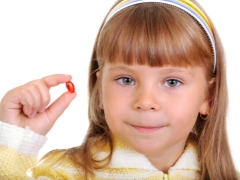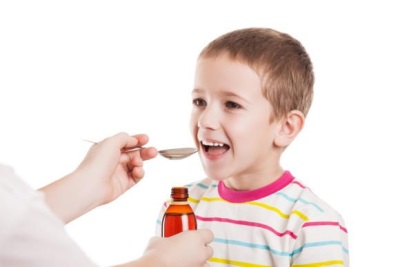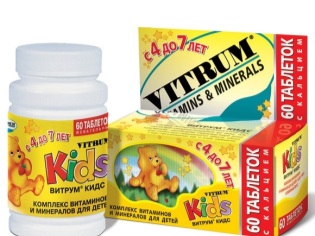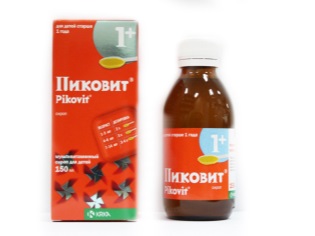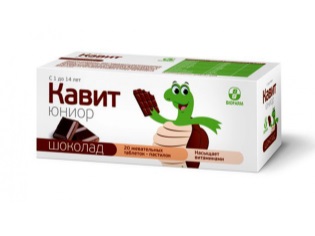Vitamins for children to increase appetite
When a child refuses to eat, eats little and rarely, parents often begin to worry. Decreased appetite can be a sign of illness, stress or lack of physical activity, but in childhood quite often problems with appetite can arise due to insufficient intake of vitamin-mineral substances.
The fact that the deterioration of appetite can be a sign of vitamin deficiency, parents can judge by other symptoms, such as increased fatigue, deterioration of sleep, irritability, bleeding gums, cracks in the lips and other manifestations. At the same time, when the appetite worsens, the child receives less food and, accordingly, less vitamins and other beneficial substances, which makes the condition even more complicated.
How do they affect?
The use of vitamin preparations affects the appetite by improving the absorption of nutrients, stimulating energy production in the children's body and normalizing the functioning of the internal organs of the baby.
The following vitamins have an effect on the child's appetite:
- Vitamin A. It is important for the skin and mucous membranes, helps strengthen the immune system and eyesight.
- Vitamins of group B (thiamine, pyridoxine, riboflavin and others). They are involved in metabolic processes and the nervous system.
- Vitamin C. Such a vitamin will strengthen the immunity of the little ones and improve the digestive process (in particular, help to absorb iron).
In addition to these vitamins in the stimulation of appetite in children play a role:
- Vitamin-like amino acid l-carnitine.
- Zinc. Important for the exchange of carbohydrates and strengthen the body's defenses.
- Magnesium. Affects sugar levels and glucose metabolism.
- Iron. Indispensable for blood formation.
- Oligofructose. It belongs to prebiotics, because it improves the growth of the microbial flora in the intestine, affecting local immunity and digestion.

Contraindications
Vitamin preparations for reduced appetite should not be given to a child if:
- The baby has an individual intolerance to some component of the vitamin-mineral complex.
- The child has developed hypervitaminosis.
It is extremely important to monitor the permissible dosages of vitamins, since many of them when used in excess can cause negative reactions. For example, increased doses of vitamin A cause vomiting, dizziness, nausea, and headaches. Excess vitamins B can lead to allergic reactions, muscle weakness, a drop in blood pressure, and nausea and diarrhea can result from an excess of vitamin C.
Forms of release
Vitamin supplements that help improve appetite are presented in the following forms:
- Syrup or oral solution.
- A powder that is added to food or mixed with water.
- Chewable tablets.
- Tablets in the shell.
The choice of a particular form of release is based on the age of the crumbs:
- If the child is very small, he is recommended drugs in the form of syrup or powder dissolved in water.
- Chewable vitamins are most often offered to preschool children.
- At school age, the child can already swallow the tablets with a shell, washed down with water.
Browse popular
|
Title |
Composition |
In what form is produced |
From what age they give |
Features of the drug and its use |
|
Vitrum Kids |
Complex of 12 vitamins and 10 minerals |
Pills |
4 years |
Vitamins are represented by chewing animal figures. The child should chew such tablets after meals. |
|
Pikovit |
Contains 9 vitamins |
Syrup |
1 year |
The drug is available in a variety of dosage forms and is prescribed in different dosages. From the age of four you can offer the child pills. |
|
Levarnitine |
Solution |
Since birth |
Use in children under 3 years old should be under the control of a pediatrician (the physician should select the dosage of the drug). |
|
|
Junior junior |
11 vitamins and calcium |
Chewable lozenges |
1 year |
The vitamin complex is represented by pastilles with apricot or chocolate flavor. |
Tips for choosing
When choosing suitable vitamins for a child, it is important to pay attention to such points:
- Who is the manufacturer. Children should buy products only reputable manufacturers who can be trusted.
- What is the composition. Ensure that the drug contains essential vitamins that affect the appetite, and also specify their dosages.
- What are the expiration dates. Children are not allowed to give expired medications, so at the date of manufacture of the drug you need to look first.
Reviews
Anna: “I regularly give my son ascorbic in winter. The appetite is much improved and the gums no longer bleed. In addition, it became very rare to get sick. If earlier I tried to persuade me to sit at the table, now I often ask for a supplement. Vitamin C son loves with different fruit flavors. ”
Victoria: “I can’t believe that pharmaceutical vitamins can improve appetite and improve health. I try to give children vitamins in their natural form, so I prepare fruits, berries and vegetables for the winter. We eat only natural, do not complain about poor appetite. "
Yuliya: “On the advice of a pediatrician, I started giving my daughter Vitrum Kids in the dosage indicated in the instructions. If I am sick, I give a little more, as it seems to me that a large dose of vitamins will help me recover faster. There are no problems with appetite after taking vitamins. ”

Ways to increase appetite in children by Komarovsky
The famous pediatrician considers the prescription of vitamin supplements to be justified only with hypovitaminosis, that is, with a lack of any specific vitamins. Komarovsky advises to increase appetite in another way. First of all, in his opinion, parents should change their attitude to poor appetite and stop turning the child’s food into the meaning of family life.
A popular doctor notes that more often, poor appetite appears in children who walk little, move little, sit more at home, and are too warmly dressed. Energy waste of such kids is minimal, so they refuse to eat.
If you play with a healthy child in active games, he will very quickly have a good appetite. At the same time, Komarovsky does not recommend feeding a child who has no appetite, since the baby’s body is not ready to absorb food if there is no appetite.
For information on how to increase the appetite of a child, and whether it is scary that your child does not want to eat, see the programs of Dr. Komarovsky.
